Last Updated on December 5, 2025 by Emma Fajcz | Published: December 15, 2018
In Lisbon, everything stops when fado is on. Silence rules the room, the lights dim, and only then the show begins. Explore with us some of the best places to see fado in Lisbon.
You may be wondering: What is fado? Fado isn’t just a traditional music style—it’s an entire experience. It’s hard not to feel touched by the vibrant performances of fadistas (fado singers), even without grasping the lyrics.
Walk into the neighborhoods of Alfama, Mouraria or Bairro Alto, and you’ll stumble upon fado shows every night, many of them with dinner included. But sometimes it’s worth exploring a bit further.
When it comes to fado, it’s easy to fall in a tourist trap, so we’re here to help! We’ve put together this guide, so you can enjoy the best fado Lisbon has to offer, with or without dinner.
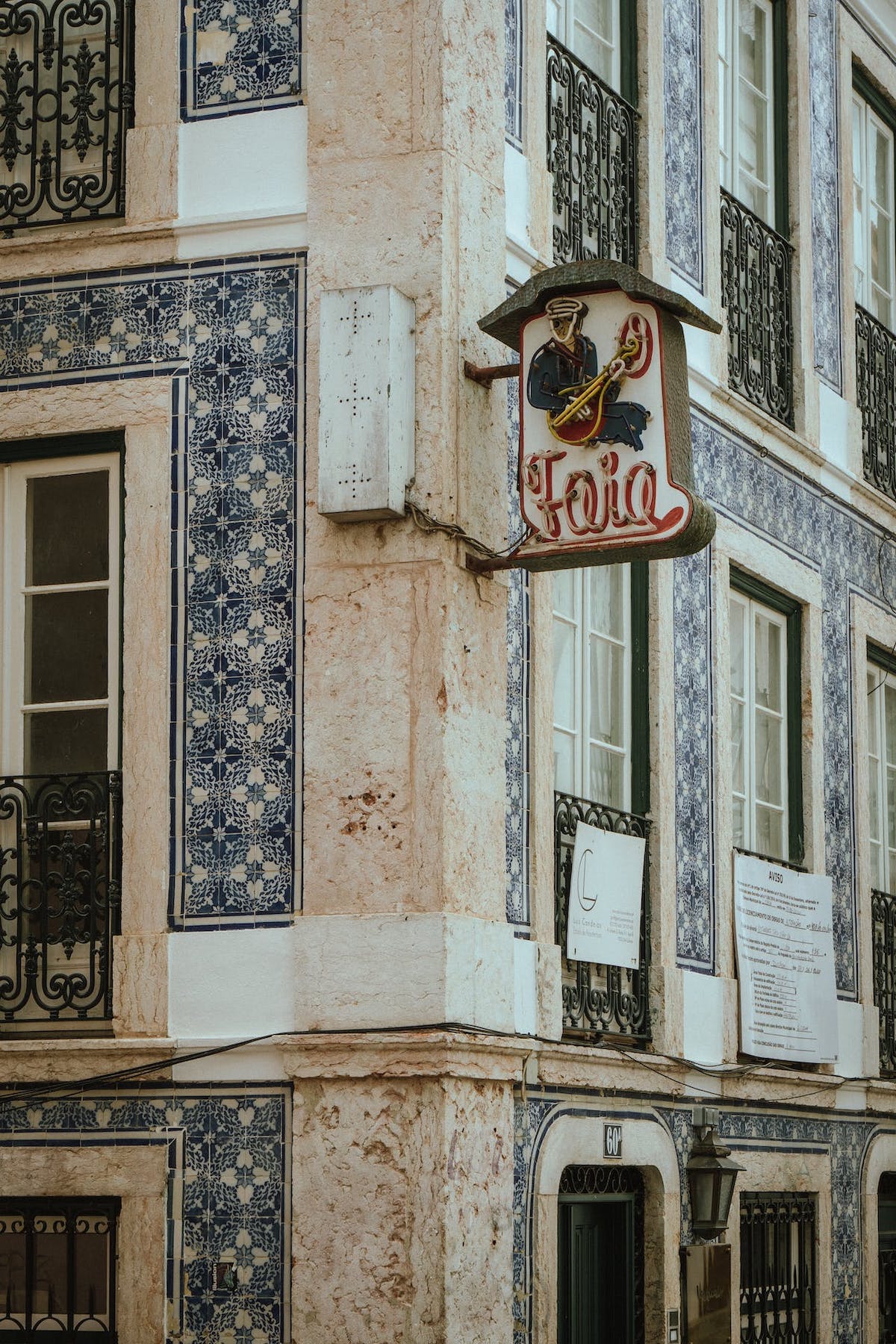
What is fado?
In Portuguese, the word fado means fate, but you probably know it as the traditional music genre. Its roots are in Alfama and Mouraria, and it’s where you can still hear many fado performances today.
Fado songs are usually connected to the feeling of saudade, a state of nostalgia and yearning for something or someone. That’s why most lyrics are about broken hearts and lost sailors in the sea.
Amália Rodrigues was one of Lisbon’s most famous fado singers, and she was the first one to take fado outside of Portuguese borders. Amália had the chance to perform on big stages, but like many fadistas, she began her career in a Fado house, aka Casa de Fado. Fado houses can be small informal eateries like a tasca or even full-on restaurants called adegas, where you can taste traditional Portuguese food.
If you’re really curious about fado, we recommend visiting the Fado Museum in Alfama. In the meantime, don’t miss these five places to hear fado in Lisbon!
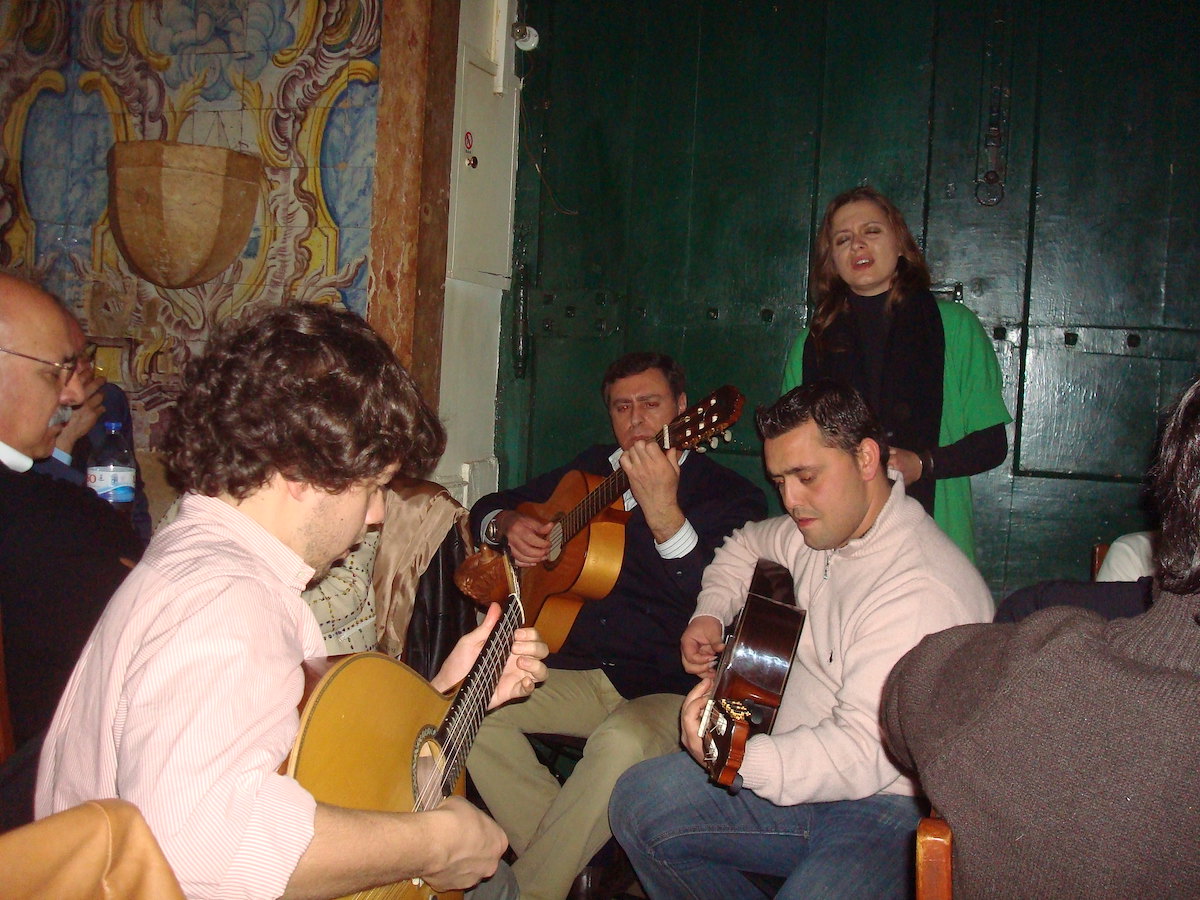
Tasca do Chico: Fado without dinner
We’re not going to lie, seeing fado in Lisbon can be expensive, especially if you’re doing the whole show plus dinner experience.
If you’re on a budget and still want to see a good fado performance, we suggest heading to a Tasca do Chico (Rua do Diário de Notícias 39, 1200-141) in Bairro Alto.
This beloved venue has been around since 1993, and it’s known for its weekly sessions of fado vadio, or fado sung by non-professionals. As soon as the music starts it gets packed, so make sure to arrive early!
If you do get hungry, order the chouriço assado (roasted chorizo). Don’t be alarmed by the flames, it’s just a traditional way of cooking chorizo in Portugal.
Insider’s Tip: Keep quiet while the fado is on, otherwise you might get shushed by the crowd.
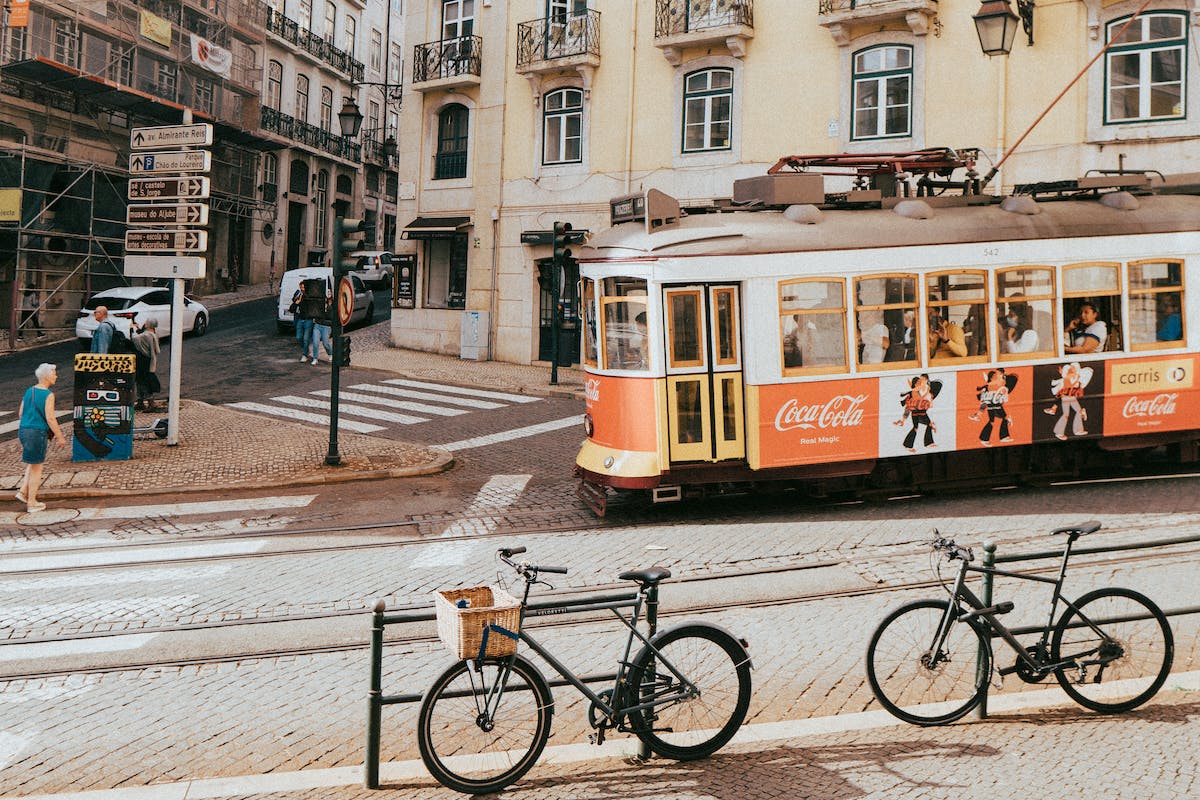
A Nini: Fado away from the crowd
You’ll find plenty of fado houses scattered around Mouraria and Alfama, but if you want to escape the crowds and get off the beaten path, A Nini (Rua Dom Francisco Manuel de Melo 44A, 1070-015) is your best bet.
Set near Parque Eduardo VII, one of the largest parks in Lisbon, this family-run restaurant can easily go unnoticed as a fado venue. It’s only on Thursdays that the stage is up for the fadistas. Suddenly, everyone turns away from their food, and the singer becomes the center of attention.
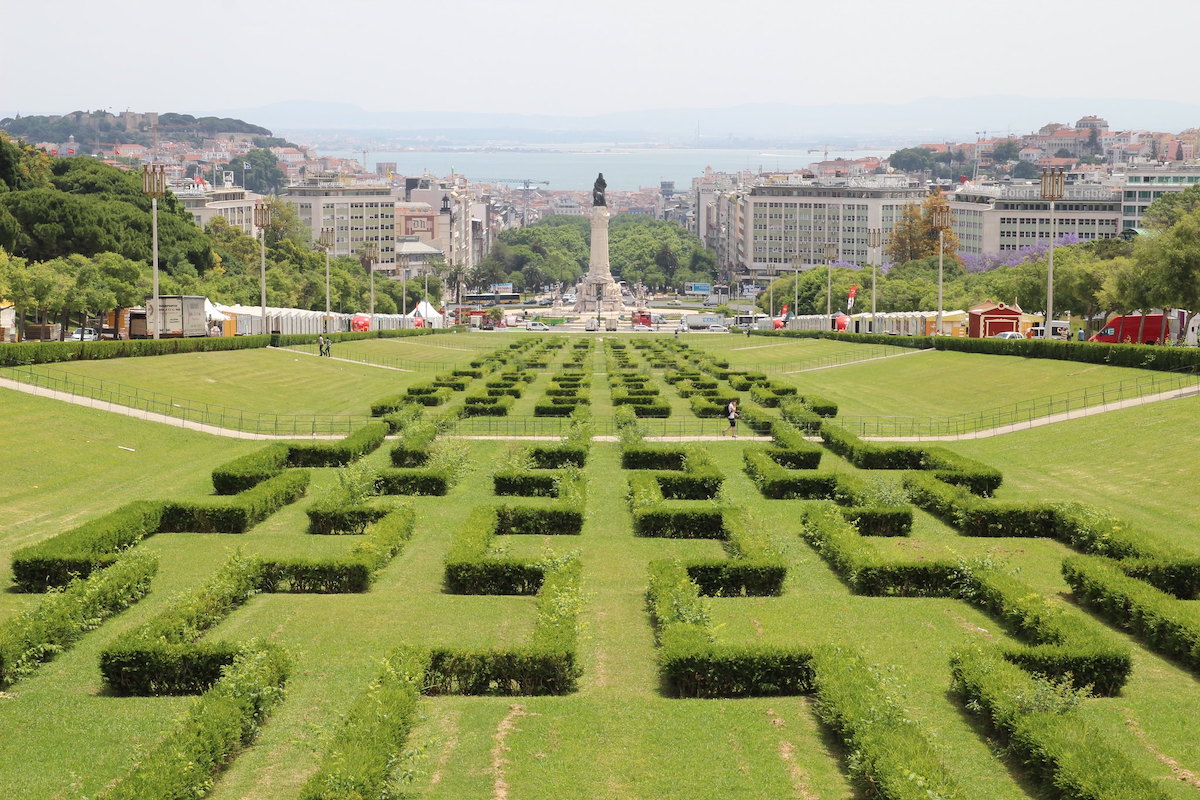
Associação do Fado Casto: After hours fado
The Associação do Fado Casto (Rua de São Mamede 8A, 1100-058) is not an ordinary fado house—it’s more like an association, a meeting point for fadistas and devoted fado fans.
You might not hear it at first, and some days there isn’t even a sign outside, but trust us, there is fado behind the door. There’s no formal setting here, just friends sharing their passion for fado.
Pedro de Castro is the owner of this unique space, and also a famous Portuguese guitar player. If you’re lucky, you might even catch him performing alongside the fadistas.
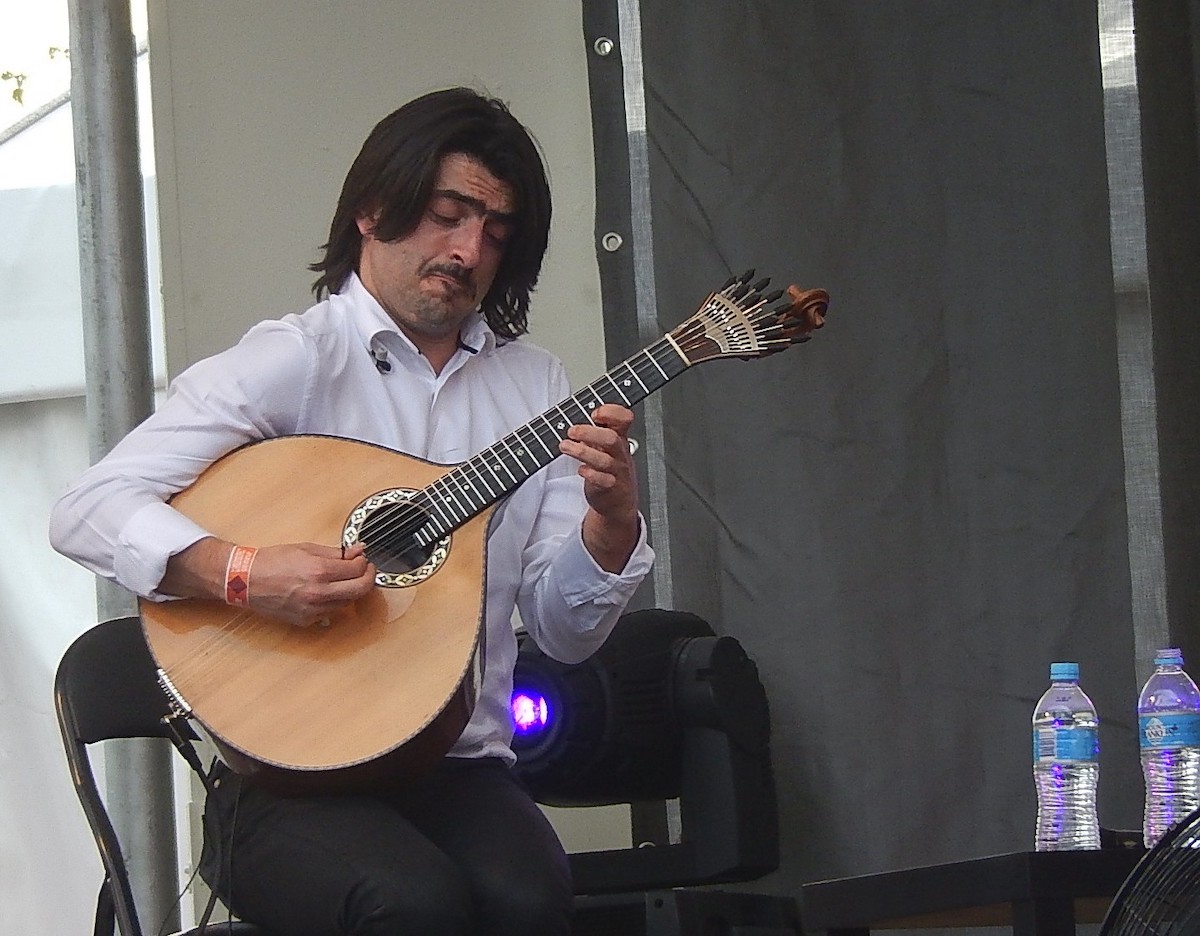
Adega Machado: A quick overview of fado
If you don’t have much time in the city, but still want to listen to fado, this might be your best bet. Every day Adega Machado hosts an experience called Fado Inside The Box.
In little less than an hour, two singers perform a range of fado songs, from the most traditional to the most modern, giving you a quick overview of the genre. The experience also includes a glass of wine and a few traditional Portuguese snacks for a very accessible price.
Adega Machado is a traditional fado house and, as so, it has the usual dinner show combo, but the experience is definitely a unique way to introduce yourself to fado.
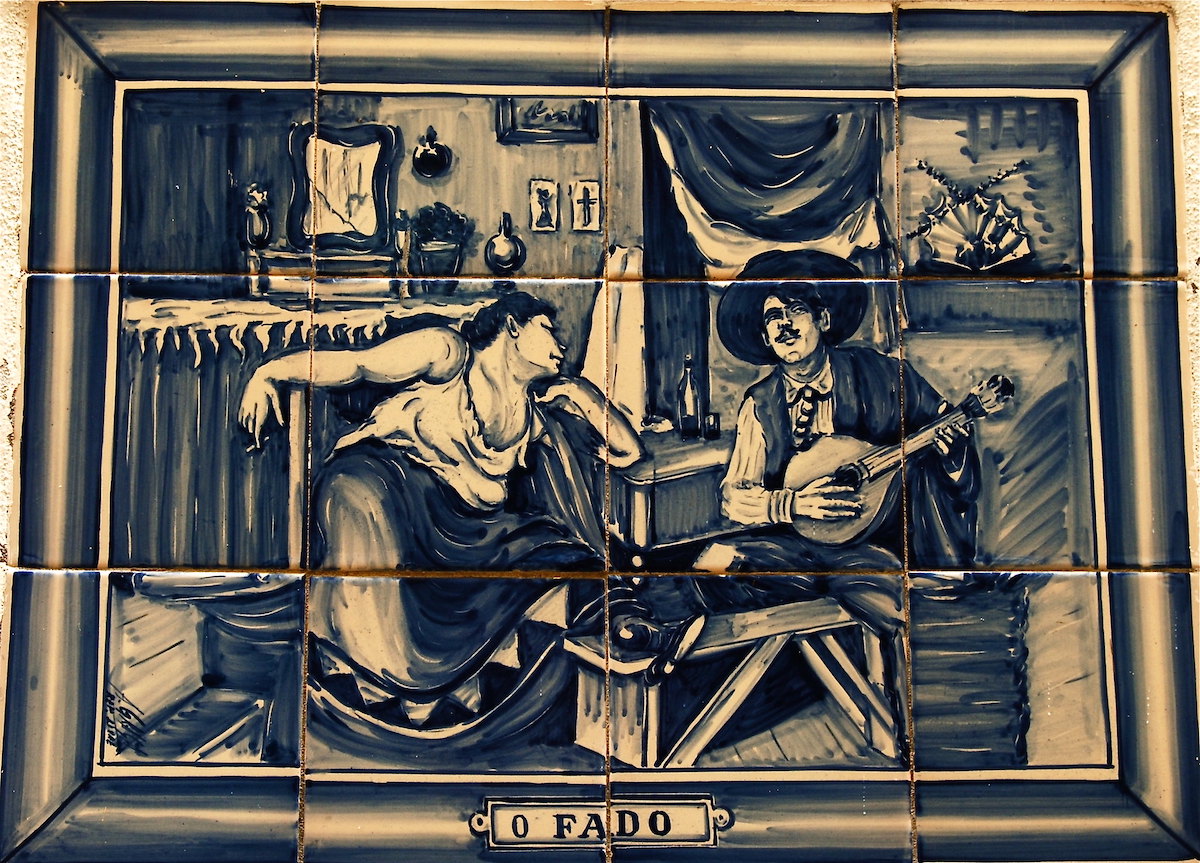
Real Fado: Fado Shows in cool Lisbon venues
Real Fado turned Príncipe Real into a unique fado hub.
This Lisbon-based project picked three venues to host weekly fado performances. Each location has their own character, and so does the show.
- Typically on Thursdays there’s traditional fado at Pavilhão Chinês (R. Dom Pedro V 89, 1250-093), one of the best cocktail bars in Lisbon.
- Typically on Fridays the show moves to Reservatório da Patriarcal, a historic underground cistern. Here, the focus is not only fado but also the influences it had in other musical genres.
Finally, on Sundays, there’s timeless fado at Embaixada, where two generations, a young voice, and a consecrated singer, perform side by side.
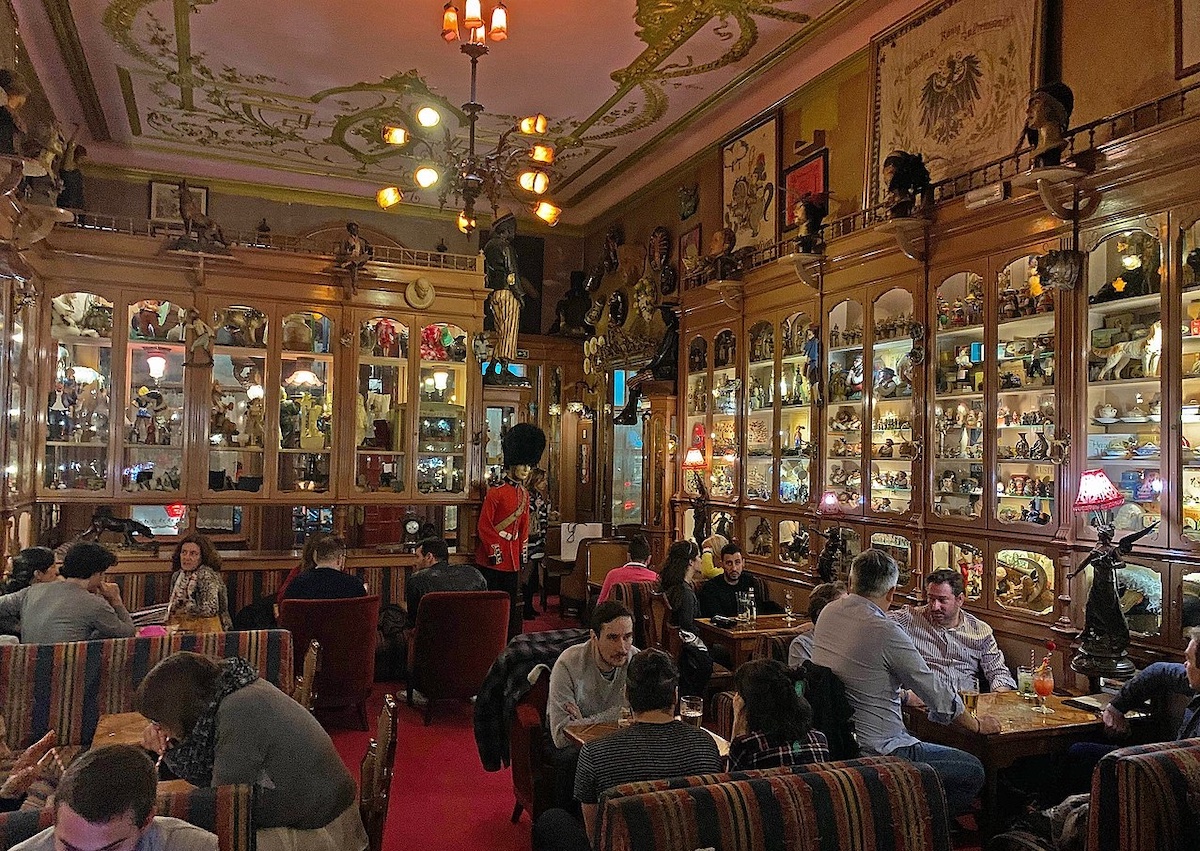


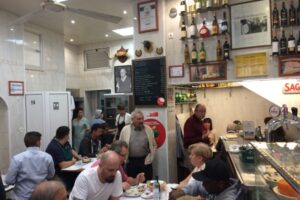







Hi I am going to Lisbon for first time I would like to know what to see and where to eat like a local
Hi Esther, here are some of our favorite things to see and do in Lisbon: https://devourlisbonfoodtours.com/blog/what-to-do-in-lisbon/
And the best places to eat like a local: https://devourlisbonfoodtours.com/blog/lisbon-restaurants-locals-eat/
Have a wonderful trip!
Boa noite devour lisbon.
Obrigado pela simpática menção à Mascote da Atalaia. Infelizmente, fechou em Agosto do ano passado devido à pandemia. Parabéns pela publicação, gostei.
Obrigado por nos ter dito. Lamentamos ouvir isso. Vamos atualizar a publicação.